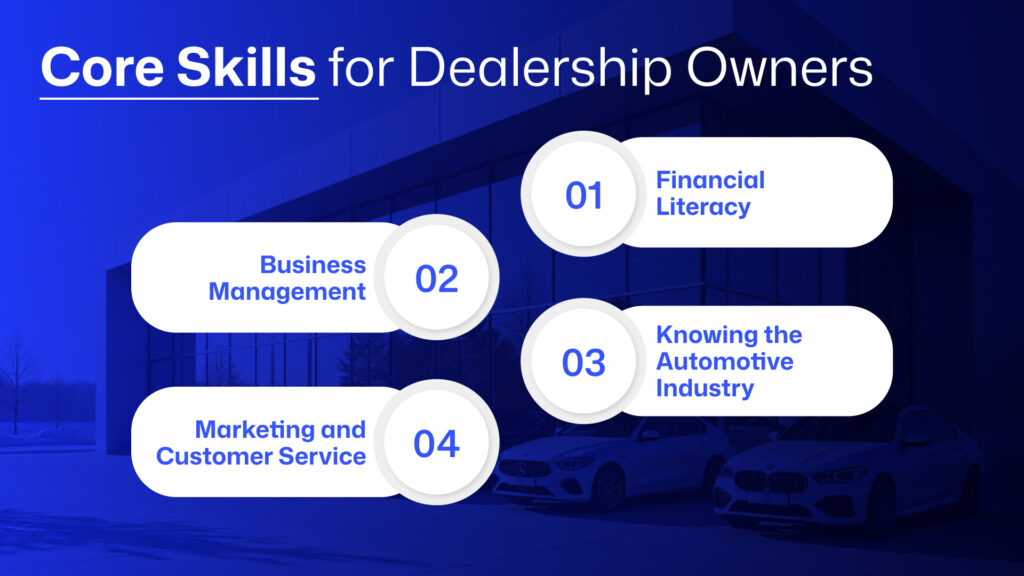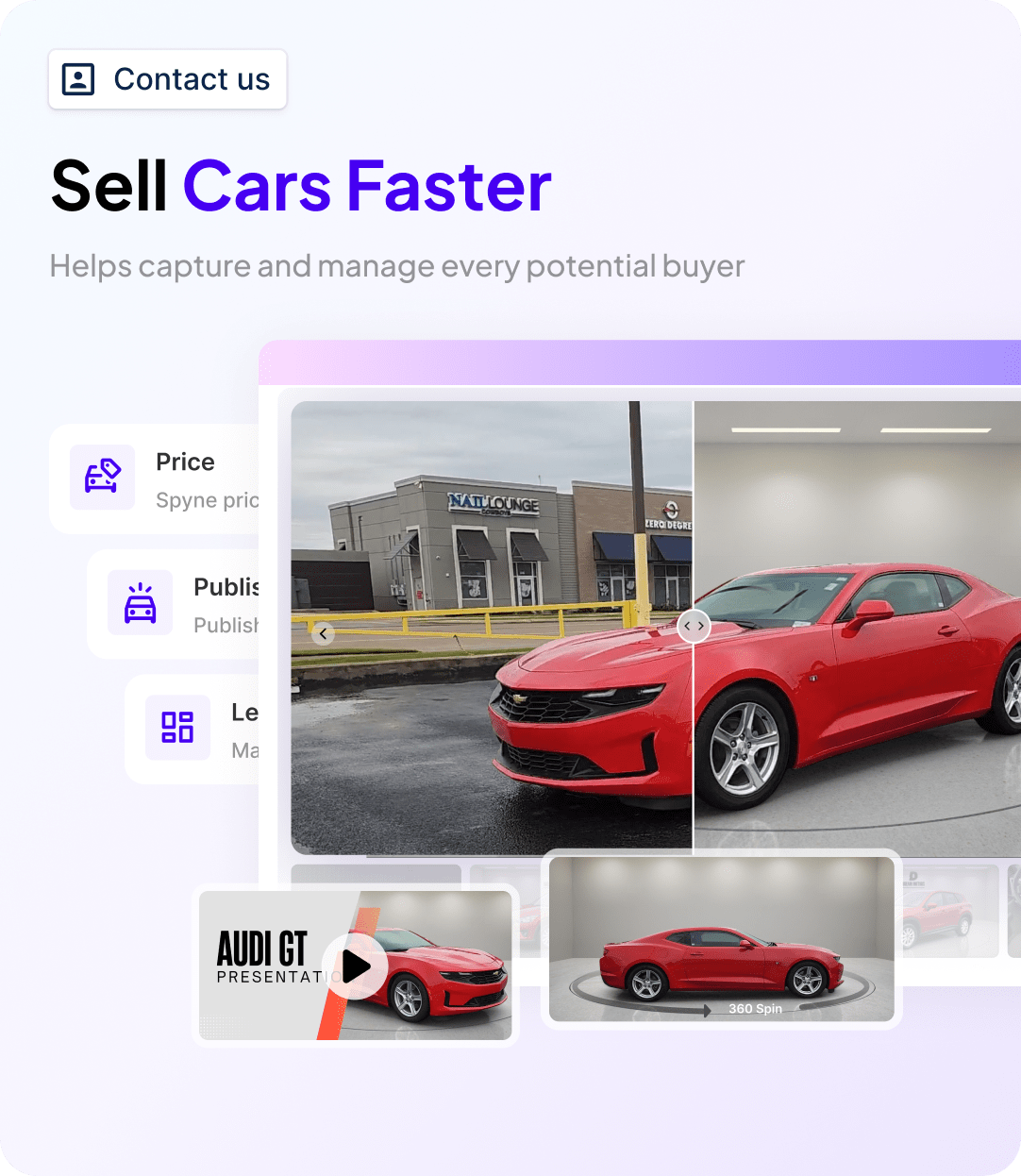The auto industry is always buzzing. People will always need cars whether they’re buying their first ride or trading up. That’s why starting a car dealership can be an exciting and rewarding journey. But let’s be real it takes more than just a passion for cars. You’ll need a solid plan, an understanding of the market, and a whole lot of determination. In this guide, I’ll walk you through everything you need to know to go from dreamer to car dealership owner.
What You Need to Know About Auto Dealerships
Before anything else, let’s talk about what a dealership actually is.
Types of Car Dealerships
There are two main types:
New car dealerships usually work with manufacturers. They sell brand-new vehicles and often follow strict rules set by the automaker. The upside? New cars usually come with higher margins and brand-backed promotions. But you’ll face higher startup costs and tighter operational controls.
Used car lot businesses are more flexible. They sell pre-owned vehicles and usually have lower startup costs. This makes them a popular choice for first-time dealership owners. There’s also a huge market for budget-friendly vehicles, which gives you a solid customer base.
Niche Dealership Models
There are also niche models like:
Buy Here, Pay Here dealerships: These offer in-house financing, mostly to buyers with credit challenges. You take on more financial risk but also gain better control over profit margins.
Wholesale dealerships: These sell to other dealers rather than to everyday customers. It’s more about volume and networking than foot traffic and showrooms.
Understanding these models helps you choose what’s right for you—and craft a focused dealership business plan.

What Skills Do You Need to Start a Car Dealership?
Loving cars is great but it’s not enough. You’ll wear many hats as a dealership owner. Here are the key skills you’ll need:
Core Skills for Dealership Owners
You must be good at sales and negotiation. You’ll be talking to customers every day. You need to understand what they want and help them find it. Reading people and adjusting your pitch is a skill that comes with time—and practice.
- Financial literacy is important too. You’ll manage big expenses, track profits, and control costs. This is where many people struggle. If numbers aren’t your thing, don’t wing it—get a bookkeeper or use user-friendly software.
- Business management is another big one. From hiring staff to handling inventory, you need to stay on top of operations. It helps to build systems early so your business doesn’t become chaos once you start scaling.
- Knowing the automotive industry gives you an edge. Stay current on trends, vehicle specs, and pricing. Go to trade shows. Subscribe to auto magazines. Join dealer associations. The more you know, the better your decisions.
- Marketing and customer service can’t be ignored. You’ll need to bring people in—and keep them coming back. Building trust in your community goes a long way.

Costs Involved With Starting a Car Dealership
Let’s talk money. Starting a dealership comes with real expenses. Here’s a breakdown to help you plan:
Key Startup Costs
- A dealership license can cost anywhere from $200 to $3,000 depending on your state.
- Leasing a lot might cost you $1,000 to $10,000 per month. Location matters, so choose wisely. Look for high-traffic areas with easy access.
- 360 Vehicle Inventory is your biggest cost. You’ll need $50,000 to $500,000 or more for your first batch of cars. Used car dealerships can often start smaller.
- Insurance is essential. Expect to pay $1,500 to $5,000 per year. This includes liability, inventory coverage, and possibly garage liability.
- Budget $5,000 to $15,000 for office equipment and dealership software. You’ll need computers, printers, and a CRM or DMS system.
- Marketing will set you back $2,000 to $10,000—but it’s worth every penny. Digital ads, signage, website design, and local promotions add up quickly.
- Don’t forget staff salaries. Costs vary based on how big your team is. Factor in wages, benefits, and training.
If you’re starting a small used car lot business, plan on having at least $100,000 to $150,000 ready. A franchise dealership could run you over half a million. Also, have some working capital set aside. Things might be slow at first. You’ll need cash flow to survive the first few months.
Steps for Starting a Car Dealership
So, how do you actually start? Here’s a step-by-step breakdown that simplifies the process.
Step-by-Step Guide
- Write a dealership business plan. Include your business model, market analysis, sales strategy, and financial projections. Treat this as your roadmap.
- Choose a business structure sole proprietorship, LLC, or corporation. Most go with LLCs for flexibility and liability protection.
- Secure a location that’s visible, accessible, and compliant with zoning laws. Make sure it’s big enough for your inventory.
- Handle the paperwork. Get all licenses and permits, including your dealer license, business license, and tax registration.
- Build your inventory by sourcing cars from auctions, trade-ins, or wholesalers. Start with a small, diverse set of vehicles and grow.
- Set up your operations with software, tools, and a professional office setup. Invest in customer relationship management (CRM) and point-of-sale (POS) systems.
- Hire your team—salespeople, admin staff, and mechanics. A great team can make or break your business.
- Launch your marketing efforts to attract customers and build a reputation. Use SEO, social media, automotive video marketing, Google Ads, and email campaigns.
- Network with lenders so you can offer financing. Customers love convenience.
- Track your KPIs like sales volume, gross profit per unit, and lead conversion rates. Data helps you improve fast.
Benefits and Challenges of Becoming a Dealer
Let’s be honest it’s not all smooth sailing. But it can be worth it.
Benefits of Owning a Car Dealership
- High income potential, especially with smart management and upselling.
- Be your own boss and make key decisions without waiting for permission.
- Flexible growth: Start small and scale up as your experience and customer base grow.
- Constant demand especially for used cars. Vehicles are essential.
- Community impact help people find reliable transportation.
- Trade-in and service opportunities. These add to your income and keep customers loyal.
Challenges to Expect
- High upfront investment, which might require loans or investors.
- Licensing and legal hurdles. Each state has its own set of rules.
- Cash tied up in inventory. Cars are expensive, and your money can get locked in.
- Fierce competition, especially in urban areas. Pricing wars are common.
- Reputation risks. One unhappy customer can harm your brand, especially online.
- Economic shifts. Car sales are tied to the broader economy and interest rates.
But don’t get discouraged. Many car dealership owners have been in your shoes. With persistence and a plan, they’ve made it work.
Legal Considerations for Starting a Car Dealership
There’s a legal side to everything and dealerships are no exception. Here’s what you need to take care of:
Key Legal Steps
- Get your dealer license by meeting all local and state requirements. Expect an application, background checks, and maybe even a course.
- Understand your tax obligations and how to handle title and registration. Stay organized or hire a CPA.
- Follow consumer protection laws like the Truth in Lending Act and Used Car Rule.
- Maintain proper insurance coverage for liability, inventory damage, and more.
- Follow employment laws if you’re hiring staff. Know your obligations around hours, pay, and discrimination laws.
- Keep accurate records. This includes vehicle history, transactions, and compliance documents.
Also, don’t forget to check if your location needs zoning approval or environmental permits.
Conclusion
Starting a dealership is no small task—but it’s an incredible opportunity. With a well-thought-out car dealership business plan, the right skills, and solid legal prep, you can build a business you’re proud of. Whether you’re opening a new showroom or starting a used car lot business, every step you take gets you closer to success. Embrace the process, learn from others, and stay focused on your goals.
If you have a genuine interest in the car sales business and are ready to put in the work, you’re already on the right track. Learn from other dealership owners. Study your local market. Be ready to adapt. You’ll face hurdles—but also chances to grow. The road might be long, but the journey can be worth it. If you’re ready to take the leap into owning a car dealership, start by planning smart. Find a great location. Build your team. And most importantly—believe in what you’re building.















